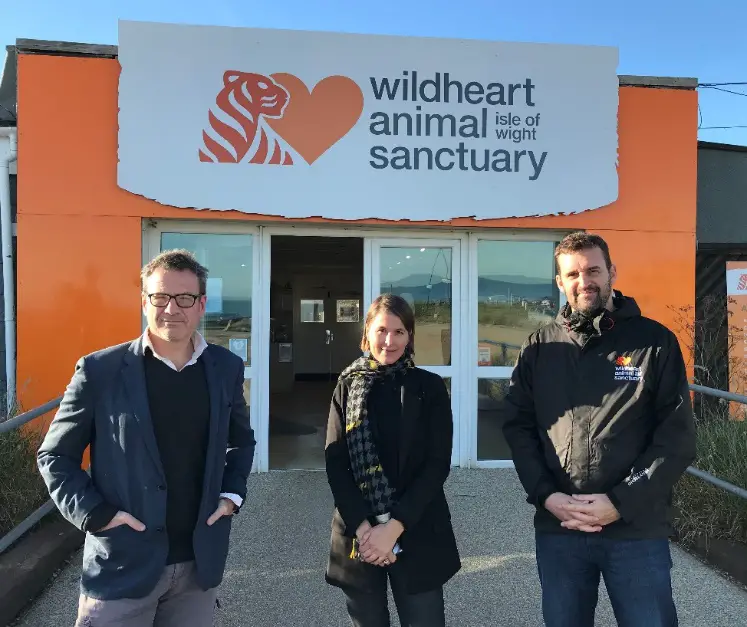The Wildheart Trust this week have announced the launch of a national campaign that aims to ban a type of cat breeding that causes untold harm and long-term damage to feline species.
The ‘SERVIVAL’ campaign seeks to make the UK one of the few countries in the world to ban the practice of breeding wild feline species with domestic felines (creating hybrid cats, such as Savannah cats).
To make a comparison, this is no less abhorrent than breeding a wolf with a poodle.
Help protect the Serval cat
The campaign name combines references to the Serval cat, an exotic felid native to Africa, and the urgent need to help protect the health and welfare of this species both in captivity and the wild.
The Wildheart Animal Sanctuary, which is run by The Wildheart Trust, will be providing a forever home for two rescued servals from the pet trade that were found locked in tiny rooms suffering from deformed and broken legs.
Backing for campaign
The campaign has been backed by the RSPCA; Battersea Dogs and Cats Home; AAP, an animal rescue organisation; and Born Free, an animal charity.
The unnatural breeding of exotic felids with domestic cats causes a number of issues, including a whole new generation of animals that are not fully domesticated and can therefore suffer from inadequate welfare standards when kept as pets.
Set to get worse
These issues are set to worsen as evidenced by the rapidly increasing number of rescued Servals and Savannah cats that have been kept illegally around Europe, indicating an out of control and escalating problem.
The Wildheart Trust wants this to stop now before it has serious consequences for the wild populations as well.
Growing demand driven by celebrity influencers
The growing demand for these hybrid cats is being driven by celebrity influencers and an explosion in the unregulated sale of hybrid kittens via social media platforms.
Unfortunately, this breeding, buying and selling in the UK is happening within the law.
Bates: Should not be kept as pets in people’s homes
Lawrence Bates, Chief Operating Officer of the Wildheart Animal Sanctuary, said,
“There is no place for this type of breeding in the 21st century. These cats may appear cute and cuddly, but they are derived from a wild species and should certainly not be kept as pets in people’s homes. We have a moral responsibility to treat animals with dignity and not as commodities to be corrupted for pleasure or commercial gain.
“At The Wildheart Trust, we are all too aware of seeing cat species being treated despicably. That’s why we are calling on the UK government to tackle this issue by making this form of hybridisation illegal and to toughen up licensing laws which we believe are not fit for purpose.”
Call to change Animal Welfare Bill
As part of the campaign the Wildheart Trust calls on the UK government to change the Animal Welfare (Kept Animals) Bill to ban this breeding process, and to set an extremely high bar for animal welfare practices in the UK which currently do not adequately cater for or regulate the husbandry requirements of these animals.
This will prevent the suffering of individual animals caught up in this trade and mitigate against future threats to wild populations of exotic felids.
Support from MP
The Wildheart Trust is pleased to count on the support of Isle of Wight Conservative MP, Bob Seely, who visited the Wildheart Animal Sanctuary in November 2021 to learn more about the campaign and discuss potential legislative and licensing routes to effect change.
Seely: Clearly there needs to be tighter rules around this
Bob Seely said,
“I was pleased to visit the Wildheart Animal Sanctuary last month to discuss the Animal Welfare (Kept Animals) Bill and hear more about the excellent work they are doing at the sanctuary.
“I am supportive of their campaign to ban the breeding of exotic felids with domestic cats in the UK and I have written to Jo Churchill, Parliamentary Under Secretary of State Department for Environment, Food and Rural Affairs to ask that government include greater protections for exotic cats in the Animal Welfare (Kept Animals) Bill.
“In addition, I have also raised this issue with the Secretary of State for Environment, Food and Rural Affairs through a written parliamentary question asking if his department has, or intend to, make provisions to ban or require licenses for the breeding of Savannah hybrid cats.
“Clearly there needs to be tighter rules around this and I thank the Wildheart Trust for bringing the matter to the attention of the UK government.”
To learn more about the protection of servals and future cat species, visit the Wildheart Trust’s campaign Website.
News shared by Oliver on behalf of the Wildheart Trust. Ed





